I started losing my hearing in my 40s - here's why you should never ignore the signs like I did
Not only the elderly experience signs of hearing loss, contrary to popular belief
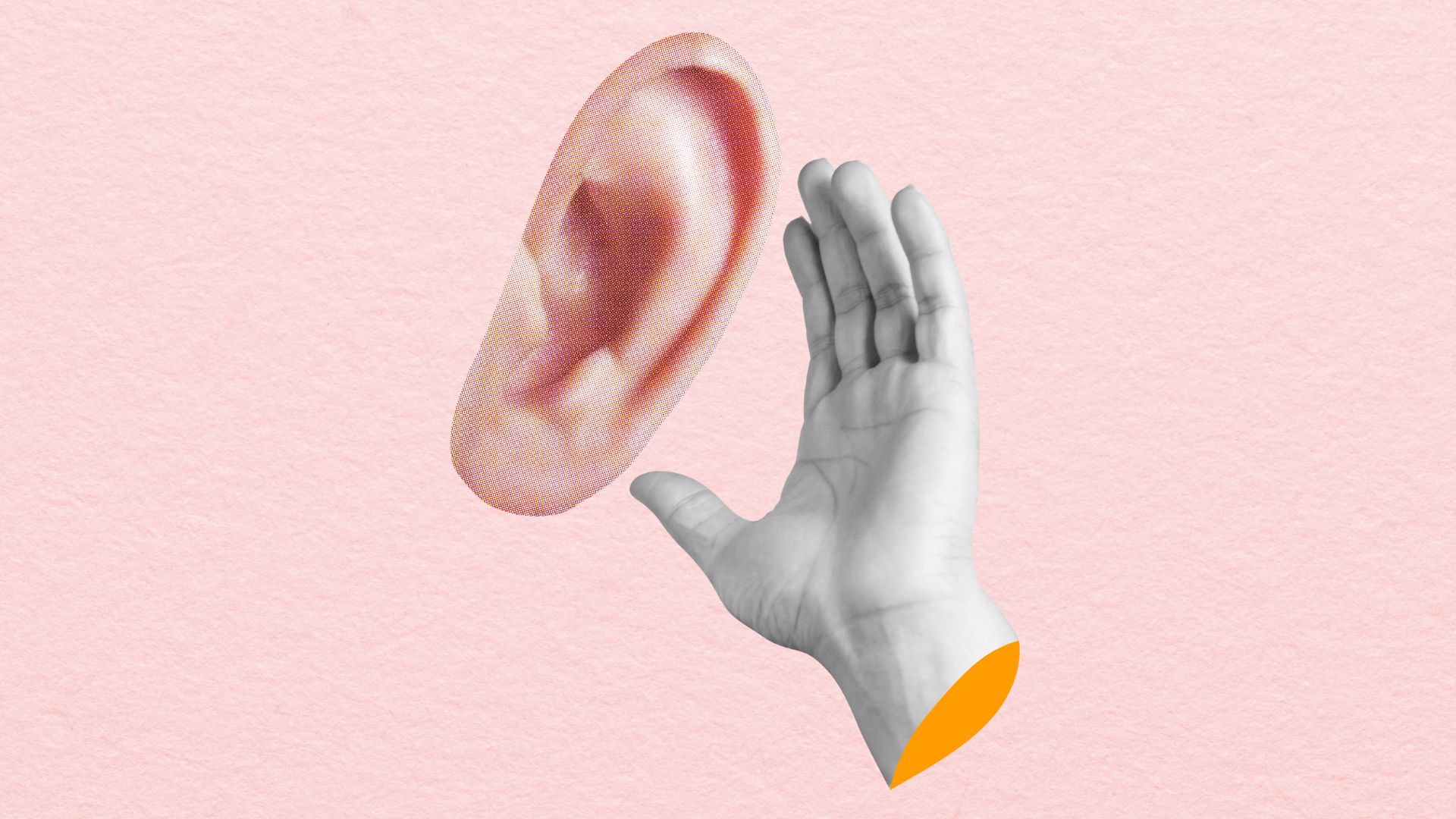
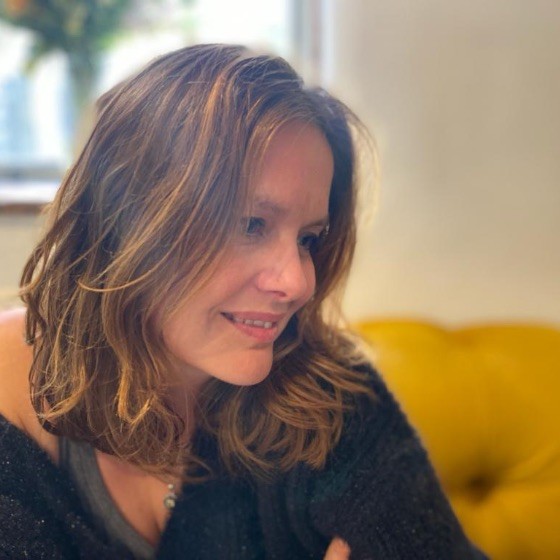
When I was young, I presumed I’d need glasses at some point (which I did), but I didn’t think I’d have the signs of hearing loss until well into old age. But – in my late forties – after struggling to understand what people said in busy environments and using subtitles to watch TV, I realised I needed help.
A hearing test then confirmed it. I had hearing loss, and I’d need a hearing aid in a few years.
At first, I was shocked, but after asking around, I found that some of my friends had experienced the same. After investigating, I learned that 1 in 10 adults between 40 and 69 have substantial hearing impairment, according to research by the University of Manchester. Not only that, but the World Health Organization estimates that, by 2030, hearing loss will be in the top 10 disease burdens in the UK – above diabetes. So, I'm far from the only one to start experiencing the signs of hearing loss earlier than expected.
“Hearing loss often creeps up unnoticed, and its causes are varied,” says Matthew Allsop, an audiologist and partner at Harley Street Hearing & Musicians’ Hearing Services. “The most common is age-related hearing loss (presbycusis), due to gradual wear and tear of the delicate hair cells in the inner ear. These cells don’t regenerate, meaning hearing can be permanently affected once damaged.”
Aside from noise-induced hearing loss (it was fun, but clubbing and concerts didn’t do us any favours), age, genetics, and even menopause can play a part. But there are many other factors too.
What causes hearing loss in your 40s?
Noisy environments, years of going to festivals, concerts, or exercise classes with ear-splitting soundtracks, and wearing headphones can inadvertently damage hearing, the experts say.
Noise-induced hearing loss (known as NIHL) is becoming increasingly common, particularly in the workplace. HSE estimates that "more than 2 million people in Great Britain are exposed to unacceptable levels of noise at work" with those working in construction, entertainment and manufacturing especially at risk.
Sign up for the woman&home newsletter
Sign up to our free daily email for the latest royal and entertainment news, interesting opinion, expert advice on styling and beauty trends, and no-nonsense guides to the health and wellness questions you want answered.
“Loud noises can damage the organ of hearing in the inner ear, causing permanent hearing loss and tinnitus,” explains Richard McKearney, an audiology adviser at RNID.
Some drugs and health conditions also have side effects that may lead to hearing loss. “Ototoxic medications (e.g. certain antibiotics or chemotherapy) can contribute, plus underlying health conditions such as cardiovascular disease, smoking and thyroid disorders have been linked to hearing changes, as they can affect blood flow to the inner ear,” says Matthew.
What about stress and early burnout? Could that cause hearing loss in middle age? After all, we’re the frazzled sandwich generation. Yes and no, says Richard.
“Persistent high stress can contribute to serious conditions such as heart disease, high blood pressure, and diabetes, which are linked to hearing impairment,” he says. “There’s some evidence that those who report higher levels of stress-related symptoms report higher levels of hearing difficulties and tinnitus. However, this doesn’t necessarily mean that stress causes hearing loss.”
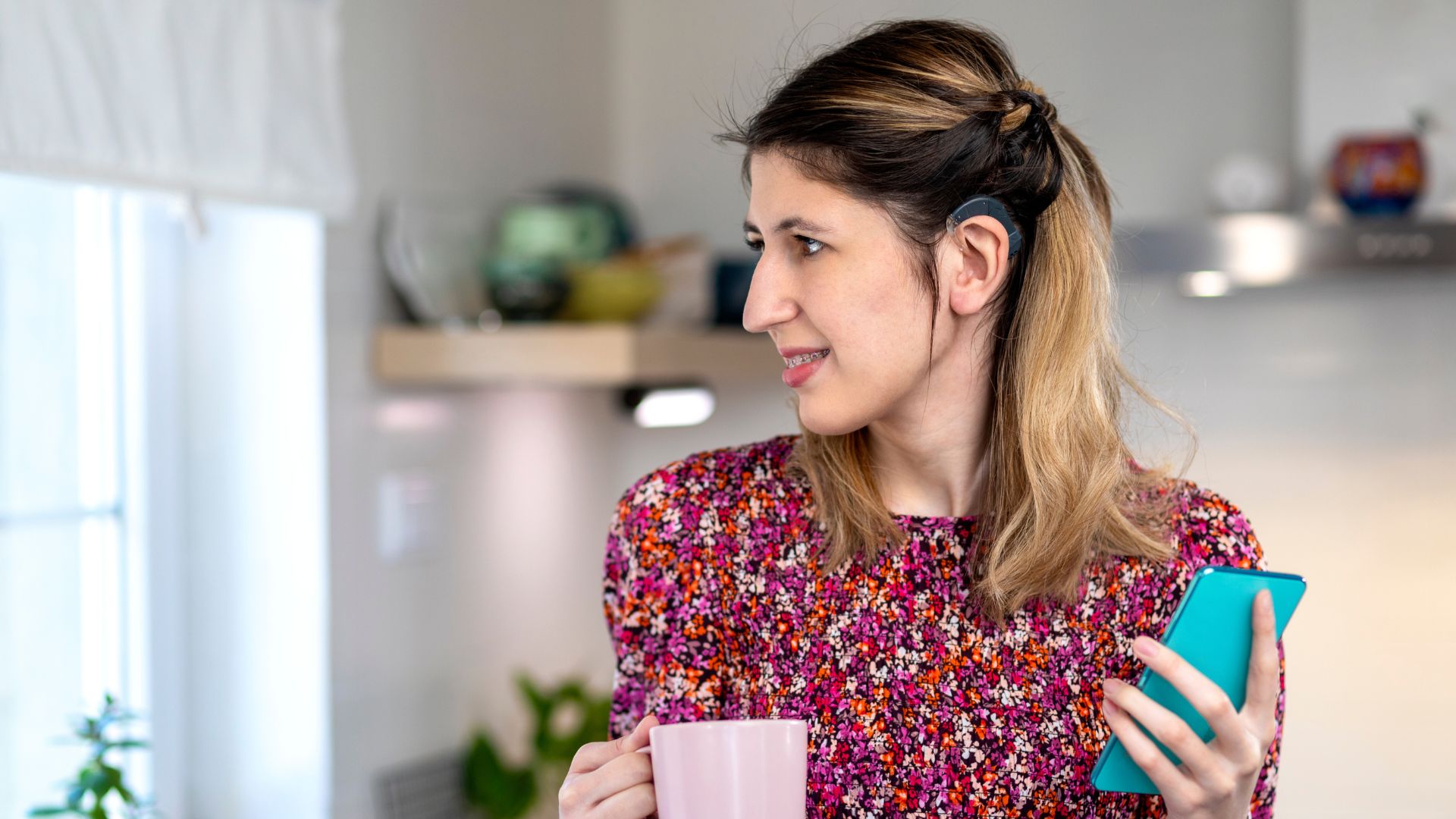
Modern hearing aids connect to Bluetooth and use built-in artificial intelligence to optimise your hearing.
Can perimenopause cause hearing loss?
It might be one of the more unexpected symptoms, but a study linked to the Karolinska Institute in Sweden found that perimenopause can set off a period of "relatively rapid" high-frequency hearing decline, even in "healthy middle-aged women".
But, much like much of the evidence around what perimenopause feels like and its impact on our bodies, more research is needed.
There is also conflicting research on whether hormone replacement therapy (HRT) can help or hinder hearing loss symptoms, with some suggesting that oestrogen can protect against it, and other research suggesting that it can make it worse.
“Studies have found a potential association between the use of oral hormone therapy and an increased risk of hearing loss,” says Matthew. “We’re not sure of the exact biological mechanisms behind this, but oestrogen plays a complex role in auditory function, influencing cochlear blood flow, neuroregulatory mechanisms, and inner ear cellular activity.”
If hormone therapy is working for you, but you’re worried about your hearing, speak to your GP or a menopause specialist before making any changes or looking for HRT alternatives.
Signs of hearing loss
Even though the signs were subtle, I knew my hearing was declining for two years before I saw an audiologist. For me, the key indicators were relying on subtitles, missing parts of conversations at parties, and, conversely, becoming more sensitive to noise.
It's very normal for hearing loss to occur gradually over time, Richard assures me. Here are the signs he sees most often:
- Turning the volume up on the TV
- Regularly asking people to repeat things
- Finding it difficult to follow conversations in noisy places
- Struggling to hear on the phone
It may be confusing at first, Matthew warns as "your ability to hear the presence of the sound will remain normal," but the ability to "hear clarity and detail in speech will gradually decline," he says.
“Many people compensate without realising by leaning in closer during conversations, lip-reading, or even avoiding social situations," he adds.
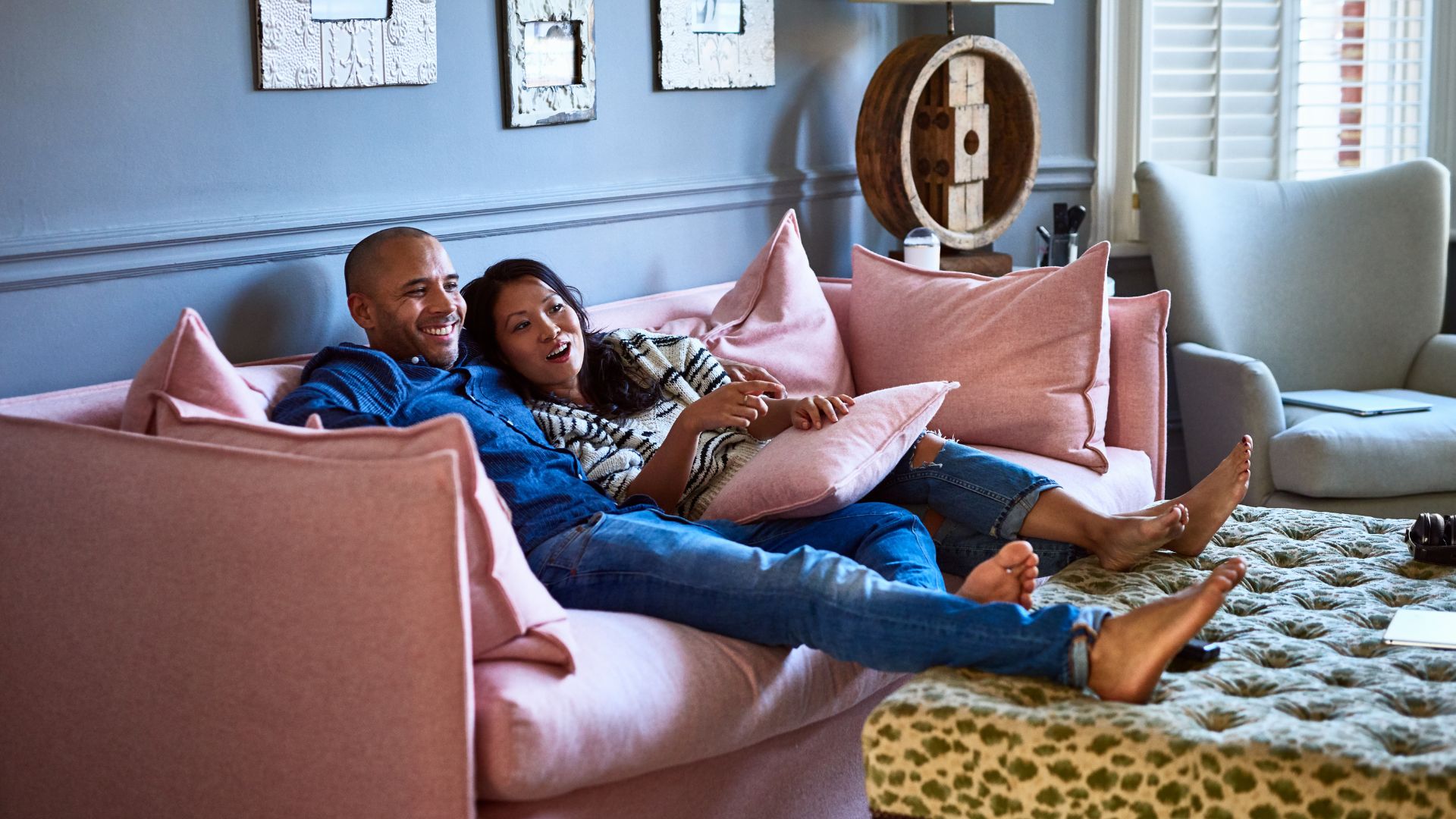
What's it like to lose your hearing in your 40s?
Like many health conditions, the initial signs of hearing loss may differ among people. Many of us notice our hearing loss at different stages too.
Here, I speak to three women who also started experiencing hearing loss in their 40s to get an idea of the other symptoms and signs to look for....
"When I had confidence dips it might have been because I was struggling to keep up."
Shelley, 48, London
I knew there was a risk of hearing loss because my mum became very deaf in her twenties, but it wasn’t until my late thirties that I noticed I struggled in noisy pubs or if people were talking at once.
I got tested when I was 46 and discovered I needed hearing aids. I’d say I had hearing loss for at least five years before that. An inherited genetic disorder puts me at risk, but I spent a lot of time clubbing so I’m sure that didn’t help. I was in denial for a few years – I think when I had confidence dips it might have been because I was struggling to keep up, but I didn’t recognise that at the time.
When I got hearing aids, I felt self-conscious. I’d sometimes take them out as I felt like it didn’t matter as people struggle to hear in loud environments, and it made me feel old and like I was on the decline. Paired with being perimenopausal and living in a society that generally doesn’t champion older women, it felt tricky.
I didn’t get organisational help but I have brilliant friends, a partner and kids, and my mates make sure I get a good seat in a bar, or ask for a quiet corner in a restaurant.
There was an adjustment in wearing hearing aids, an acceptance that these tiny bits of equipment were empowering me to connect with people and the world, so I learnt to own it. Now, if I’m in new environments, I’ll explain and ask people to look at me when they’re talking, or understand if I need them to repeat themselves. I point to my hearing aids and say, ’I’m quite deaf, can you speak up?’. Doing this with confidence makes me feel in control.
People want to be heard, and when I wasn’t upfront sometimes people thought I was being rude or ignoring them, so it made sense to give myself that agency.
It’s worth knowing that if you have hearing loss or you’re deaf, you’re disabled and protected by The Equality Act 2010. This means employers must make reasonable adjustments. You’re also entitled to certain benefits such as disabled railcards and other disability discounts. Check out RNID’s advice.
"When watching TV, I’d rewind parts because I couldn't tell what had been said."
Marie, 52, Stoke-on-Trent
My family noticed problems before me, but I don't think they considered hearing loss. I was too young. They thought I was slow at responding, or not listening. It was gradual. In my early-to-mid 40s, I became aware that, when watching TV, I’d rewind parts because I couldn't tell what had been said.
Towards my late 40s, I became more reliant on subtitles and if someone spoke who was out of sight, I’d have to go where I could see them. In meetings, I missed important info, and I’d dread phone calls because people sounded muffled.
I'd also started experiencing tinnitus, which disrupted my hearing. It was the most prominent sound, and this was when I became aware I had hearing difficulties.
I tried RNID’s online hearing test, which suggested hearing loss. After my results, I booked a hearing test with Specsavers. A week later, I collected my hearing aids.
I was 51 and it wasn't until I had them fitted that I realised how much I couldn't hear. I definitely needed help sooner, but I was so unaware of my hearing loss, and of hearing loss in general, that I didn’t associate it with someone my age.
Unfortunately, my lack of awareness, doubled with health professionals’ attitude towards my symptoms (my GP dismissed my tinnitus), meant my hearing was neglected. It’s likely that I have Ménière's disease, and my hearing loss could be linked to this.
I didn't feel embarrassed telling family. If anything, I felt relief. With others, I didn't feel awkward but the most common response was slight disbelief (‘you're too young!’) This is when I realised that hearing loss is misunderstood and it’s not just me but society that believes it only happens to the elderly.
"[It's] particularly poor in situations with lots of background noise."
Lisa, 53, Hove
I noticed my hearing changing in my late forties and went to the doctor when I was 51. He checked for wax and infections then referred me to hospital where I had tests and saw a consultant. They identified hearing loss, particularly in my right ear, and narrowed it down to it being particularly poor in situations with lots of background noise.
I was offered a hearing aid, or I could wait and revisit it 18 months later, which I agreed to.
It doesn’t concern me too much. It’s another sign of age. Although, I imagine it’s caused by live music and clubbing when I was younger. Now, I always wear ear defenders or ear plugs when seeing live music.
Having said that, I postponed getting a hearing aid – the consultant said I was on the cusp of needing one – as my reaction was to delay the inevitable because I needed to process it.
When I get one, I’ll initially wear it in group situations as these are the times it bothers me, although I know it annoys my family that I turn the TV up! Compared with what some people contend with, it isn’t a massive deal. At least I can wear a hearing aid – they’re much more discreet now.
What can you do for mild hearing loss?
Like me, you might be in denial. Our forties and fifties seem too young to experience hearing loss, but the sooner it’s dealt with the better.
Here's what Matthew recommends:
- Get a hearing test: "If hearing loss is identified, beginning your journey with hearing aids sooner rather than later is important," he says. "The longer you wait, the harder it becomes to acclimatise to a new way of listening."
- Be open to hearing aids: "Hearing aids aren't the big beige bananas from years gone by. They're sleeker, with built-in artificial intelligence to optimise your hearing, Bluetooth connectivity to allow them to work with your smartphone, and other features," he says. Apple has even released a hearing aid feature in the latest AirPods.
- Acknowledge that things will be different: "Hearing loss can impact your confidence, social life, and wellbeing," he warns. "It's common to feel frustration, embarrassment, or isolation, but acknowledging it and seeking support makes a huge difference."
- Find support: "Many people find that embracing hearing technology and joining peer support groups, or speaking with an audiologist, helps them regain confidence," he says.
- Ask for help: Richard agrees that it's very important to have support from those around you if you're experiencing hearing loss. "Let those you communicate with know," he suggests. "Ask people to get your attention before they speak to you – it can help if people face you when they’re talking with you – and ask them to repeat things or say them differently if you’ve not understood.”
Debra Waters is an experienced online editor and lifestyle writer with a focus on health, wellbeing, beauty, food and parenting. Currently, she writes for the websites and Woman&Home and GoodtoKnow, as well as the Woman, Woman’s Own and Woman’s Weekly magazines.
Previously, Debra was digital food editor at delicious magazine and MSN. She’s written for M&S Food, Great British Chefs, loveFOOD, What to Expect, Everyday Health and Time Out, and has had articles published in The Telegraph and The Big Issue.
-
 How to plant freesia bulbs: easy steps for colourful summer blooms
How to plant freesia bulbs: easy steps for colourful summer bloomsIf you're looking to add some vivid colour and life to your garden, freesias are the perfect choice
By Emily Smith Published
-
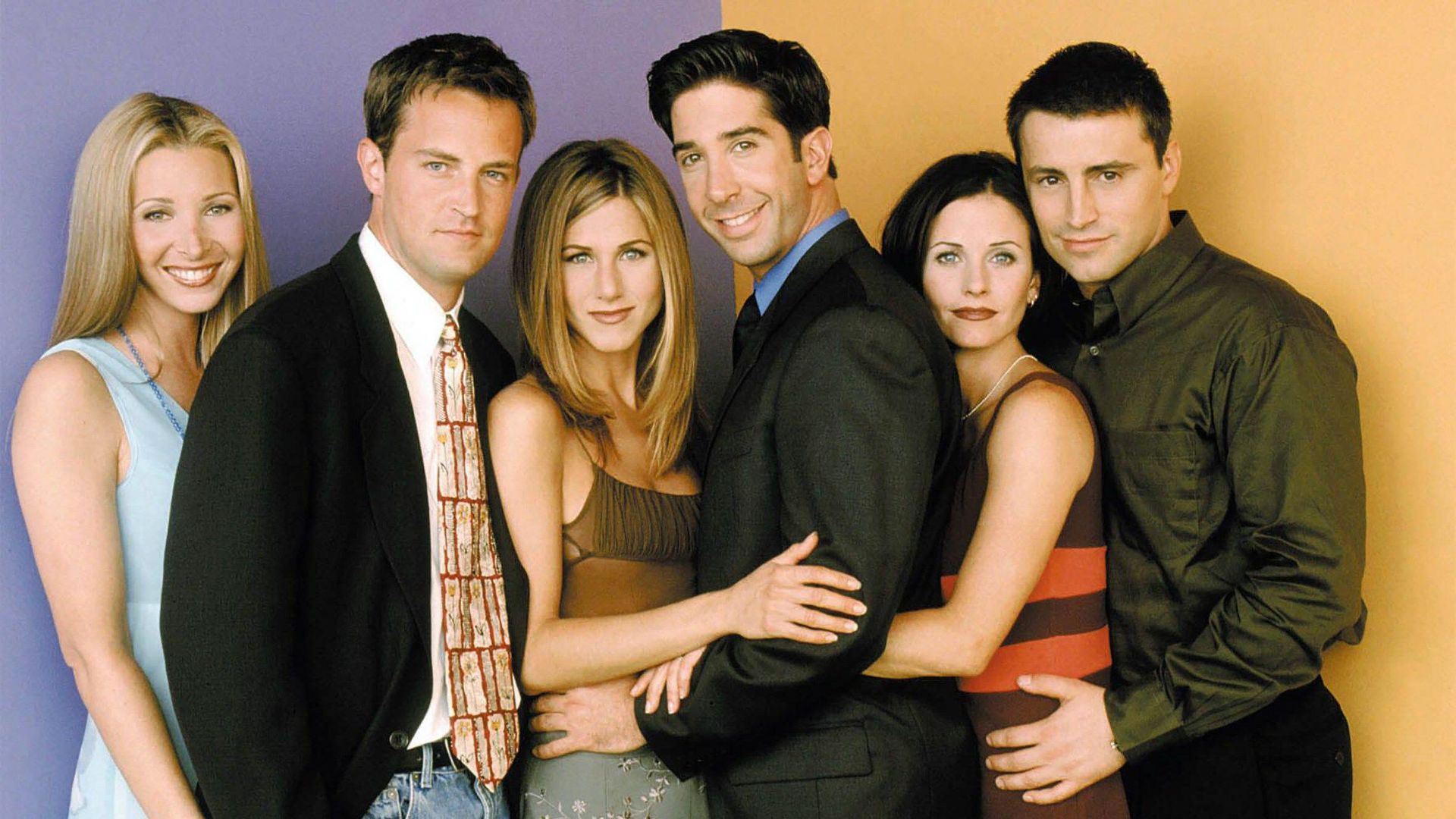 Friends quotes that will never get old
Friends quotes that will never get oldThe One With The Quotes You’ll Never Forget; relive the lines that made Friends legendary...
By Natalie Denton Published